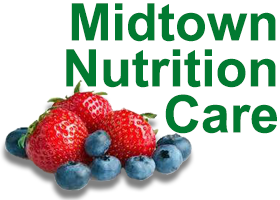PROTEIN SUPPLEMENTS
Protein powders, pre-made shakes and protein bars can be used for a variety of reasons: weight loss, weight gain, sports performance, building muscle mass, or general health and wellness.
PROTEIN SOURCES
Whey protein (derived from milk) is a very common protein source. It contains all the essential amino acids and is easily digested. It may be described as Whey Protein Isolate, Whey Protein Concentrate or Whey Protein Hydrolysate. Whey protein is often used post workout. Whey protein is tolerated by most people, but if you have an allergy you will have to choose an alternative protein source.
Soy Protein is a plant-based protein. It also contains all the essential amino acids. It may be described as Soy Protein or Soy Protein Isolate. Soy Protein Isolate has a higher protein composition.
Brown Rice Protein, Pea Protein and Hemp Protein are other plant-based protein sources. These are good alternatives if you have a milk or soy allergy. Some examples are Huel, Garden of Life Protein Powder, Ka’Chava, Orgain, Vega Protein, KOS Organic Plant-based Protein, Naked Pea, Sunwarrior and Iconic Protein.
USES OF PROTEIN SUPPLEMENTS
If your goal is to gain weight, or meet increased nutritional needs after surgery or illness, there are high calorie options, such as Ensure (250 cals), Ensure Plus (350 cals), Boost, Boost Plus, Boost VHC (very high calorie 500+ cals), Soylent (400 cals), Huel (400 cals), Kate Farms 1.0 (330 cals) or 1.4 (440 cals).
If you’re trying to lose weight, avoid shakes with added sugars (dextrins or maltodextrins). In addition, avoid products with BCAAs (branch chain amino acids) as they promote muscle growth and weight gain. Some examples: Glucerna Hunger Smart, SlimFast High Protein, Muscle Milk Light, and Core Power Protein Shake.
If you are trying to build muscle, you could choose a product with Whey Protein Isolate. These have the most bio-available protein and are easily absorbed. Usually, a protein shake is consumed within 60 minutes after a workout.
If you have diabetes, or are watching your blood sugar, do not choose a powder or pre-made shake that lists sugar as one of the first three ingredients. Aim for a lower carbohydrate content, close to 5-15 grams of carbohydrate per serving. Many of the protein meal replacement shakes are low-sugar and have 20 grams of protein per serving.
If you have sensitive digestion, lactose intolerance or IBS, be careful about choosing a supplement. Read labels carefully and try a lactose-free, plant-based option, or possibly gluten-free. Some artificial sweeteners, added sugars or other additives may cause gas, bloating or diarrhea for some individuals.
TIPS FOR MAKING YOUR OWN SHAKES
For extra protein and/or calories you can add a Greek yogurt or nut butter. For additional calories, you can add avocado, which is low in protein but high in healthy calories.
If you are sensitive to lactose, you can use soy, almond, coconut, cashew or hemp milk, instead of cow or goat milk.
If sugar is a concern, you should limit mango, banana, pomegranate, cherries, oranges, kiwi and grapes, which are high in sugar. Berries are lower in sugar and would be a better choice.
In order to add fiber to your shake, you can add flax, chia, hemp seeds, oat bran, oatmeal, kale or other greens.
